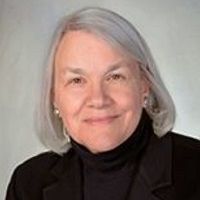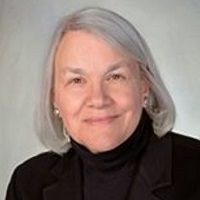Three Overlooked Rewards of Living Longer Lives
Making your retirement savings last multiple decades may be financially daunting, but living to a ripe, old age can be well worth it for individuals, families and the economy.


Profit and prosper with the best of Kiplinger's advice on investing, taxes, retirement, personal finance and much more. Delivered daily. Enter your email in the box and click Sign Me Up.
You are now subscribed
Your newsletter sign-up was successful
Want to add more newsletters?

Delivered daily
Kiplinger Today
Profit and prosper with the best of Kiplinger's advice on investing, taxes, retirement, personal finance and much more delivered daily. Smart money moves start here.

Sent five days a week
Kiplinger A Step Ahead
Get practical help to make better financial decisions in your everyday life, from spending to savings on top deals.

Delivered daily
Kiplinger Closing Bell
Get today's biggest financial and investing headlines delivered to your inbox every day the U.S. stock market is open.

Sent twice a week
Kiplinger Adviser Intel
Financial pros across the country share best practices and fresh tactics to preserve and grow your wealth.

Delivered weekly
Kiplinger Tax Tips
Trim your federal and state tax bills with practical tax-planning and tax-cutting strategies.

Sent twice a week
Kiplinger Retirement Tips
Your twice-a-week guide to planning and enjoying a financially secure and richly rewarding retirement

Sent bimonthly.
Kiplinger Adviser Angle
Insights for advisers, wealth managers and other financial professionals.

Sent twice a week
Kiplinger Investing Weekly
Your twice-a-week roundup of promising stocks, funds, companies and industries you should consider, ones you should avoid, and why.

Sent weekly for six weeks
Kiplinger Invest for Retirement
Your step-by-step six-part series on how to invest for retirement, from devising a successful strategy to exactly which investments to choose.
In the early 1900s, any American over the age of 65 was considered "old." That's understandable because in those days the average life expectancy of U.S. citizens was 47 years. My how things have changed!
Today we define "old" as somewhere north of 90, and by all indications, the definition of old age is going to keep on rising. According to the U.S. Census Bureau projections, by 2050 at least 400,000 of our citizens will be 100 or older. While this is a welcome development and something most of us never imagined, planning for longevity brings a whole new meaning to the idea of creating an "abundant second half."
For many Americans, living really long lives is a double-edged sword. On one hand, the idea of getting more years with the people we love and more time to do the things we enjoy is fantastic. On the other hand, the longer we live, the more money we'll spend; and the more money we spend, the more money we'll need; and the more money we need, the more significant the demands we'll place on our investment portfolios.
From just $107.88 $24.99 for Kiplinger Personal Finance
Become a smarter, better informed investor. Subscribe from just $107.88 $24.99, plus get up to 4 Special Issues

Sign up for Kiplinger’s Free Newsletters
Profit and prosper with the best of expert advice on investing, taxes, retirement, personal finance and more - straight to your e-mail.
Profit and prosper with the best of expert advice - straight to your e-mail.
The quality of our "bonus" years will be directly influenced by the strategy each of us co-creates with our financial advisers, the health care decisions we make, the way we manage our finances and the manner in which we live our lives.
Still, as financially demanding as it can be to plan for a long life, we must remember that it is well worth it. Long life is a gift to each individual. We should also keep in mind some of the less obvious but significant rewards of longevity:
The opportunity to contribute to the economy
In a 2013 white paper titled, The Longevity Economy: Generating Economic Growth and New Opportunities for Business, Oxford Economics coined the term "longevity economy." It's defined as the "sum of all economic activity serving the needs of Americans over 50 and including both the products and services they purchase directly and the further economic activity this spending generates." Oxford Economics anticipates that this segment of the population will increase its contributions to economic activity from $4.6 trillion in direct spending to $13.5 trillion in 2032. But that's not all; the over-50 population contributes $100 billion to charity, representing 70% of all individual contributions. The estimate of economic activity and charitable contributions our aging population is expected to make to the economy dispels the myth that an aging population is a drag on social programs and the economy.
The benefit of sharing wisdom
Wisdom—the sum of our values, knowledge, life experiences and the lessons we've learned from our success and failures—is a by-product of living life and one of the most priceless gifts of longevity. Although intangible, wisdom shapes our lives as we age; it influences everything, from the way we conduct ourselves to our philosophy of life and the values we pass on to our children and grandchildren.
Life is a series of trade-offs, the most significant of which is youth for old age. We don't get to choose whether we make that trade-off. But we do get to choose the way we spend our wisdom—the life-lived dividend we earn as we age—and many of us have chosen to invest our wisdom in our co-workers, our communities and our families.
The positive influence on families
In 1989, 109-year-old Augusta Bunge and the six other generations of her family took their place in the Guinness World Records as the family with the most generations alive at the same time. Augusta was 109, her daughter was 89, her granddaughter was 70, her great-grand daughter was 52, her great-great granddaughter was 33 and her great-great-great granddaughter was 15 when she gave birth to Augusta's great-great-great-great grandson that year.
While few of us would even come close to taking the Guinness World Record away from Augusta, many of us currently share the earth with three or more generations of our own families. According to a 2011 National Institute on Aging, report titled, Global Health and Aging, "there is no historical precedent for a majority of middle-age and older adults having living parents."
Of course longevity increases the possibility that at some point younger family members may be called upon to provide or coordinate care for their elders, but support and caring is not a one-way street. Today it is also common for older family members to help their children by running errands and by providing childcare and regular or situational financial support for younger members of their families.
Finally, it's also important to point out that in our increasingly complicated world, there are immeasurable benefits gained when younger generations share a family history and values with their grandparents or great-grandparents.
Longevity is here to stay! And that's great because it's the ultimate win/win/win for individuals, families and our country.
Related Content
Profit and prosper with the best of Kiplinger's advice on investing, taxes, retirement, personal finance and much more. Delivered daily. Enter your email in the box and click Sign Me Up.

Jan Blakeley Holman is director of advisor education at Thornburg Investment Management. She is responsible for identifying and creating advisor education programs that support financial advisors as they work with their clients and prospects. Jan has spent more than four decades in the financial services industry. Over the course of her career, she’s served as a financial advisor, an advisor to financial advisors and a financial services corporate executive. Visit Thornburg’s website to enjoy more of Jan’s articles and podcasts.
-
 Dow Leads in Mixed Session on Amgen Earnings: Stock Market Today
Dow Leads in Mixed Session on Amgen Earnings: Stock Market TodayThe rest of Wall Street struggled as Advanced Micro Devices earnings caused a chip-stock sell-off.
-
 How to Watch the 2026 Winter Olympics Without Overpaying
How to Watch the 2026 Winter Olympics Without OverpayingHere’s how to stream the 2026 Winter Olympics live, including low-cost viewing options, Peacock access and ways to catch your favorite athletes and events from anywhere.
-
 Here’s How to Stream the Super Bowl for Less
Here’s How to Stream the Super Bowl for LessWe'll show you the least expensive ways to stream football's biggest event.
-
 How to Add a Pet Trust to Your Estate Plan: Don't Leave Your Best Friend to Chance
How to Add a Pet Trust to Your Estate Plan: Don't Leave Your Best Friend to ChanceAdding a pet trust to your estate plan can ensure your pets are properly looked after when you're no longer able to care for them. This is how to go about it.
-
 Want to Avoid Leaving Chaos in Your Wake? Don't Leave Behind an Outdated Estate Plan
Want to Avoid Leaving Chaos in Your Wake? Don't Leave Behind an Outdated Estate PlanAn outdated or incomplete estate plan could cause confusion for those handling your affairs at a difficult time. This guide highlights what to update and when.
-
 I'm a Financial Adviser: This Is Why I Became an Advocate for Fee-Only Financial Advice
I'm a Financial Adviser: This Is Why I Became an Advocate for Fee-Only Financial AdviceCan financial advisers who earn commissions on product sales give clients the best advice? For one professional, changing track was the clear choice.
-
 65 or Older? Cut Your Tax Bill Before the Clock Runs Out
65 or Older? Cut Your Tax Bill Before the Clock Runs OutThanks to the OBBBA, you may be able to trim your tax bill by as much as $14,000. But you'll need to act soon, as not all of the provisions are permanent.
-
 I'm a Financial Adviser: This Is the $300,000 Social Security Decision Many People Get Wrong
I'm a Financial Adviser: This Is the $300,000 Social Security Decision Many People Get WrongDeciding when to claim Social Security is a complex, high-stakes decision that shouldn't be based on fear or simple break-even math.
-
 4 Ways Washington Could Put Your Retirement at Risk (and How to Prepare)
4 Ways Washington Could Put Your Retirement at Risk (and How to Prepare)Legislative changes, such as shifting tax brackets or altering retirement account rules, could affect your nest egg, so it'd be prudent to prepare. Here's how.
-
 Is Your Retirement Plan Built for 2026 — or Stuck in 2006?
Is Your Retirement Plan Built for 2026 — or Stuck in 2006?It's time to move away from the 4% rule and the 60/40 portfolio to an adaptable, tax-diversified strategy focused on reliable income and longevity.
-
 Filed for Social Security Too Soon? 2 Ways to Get a Do-Over
Filed for Social Security Too Soon? 2 Ways to Get a Do-OverIf you've claimed Social Security too soon, two SSA rules allow a do-over. But be warned: Using them clumsily can lead to surprise repayments or lost benefits.